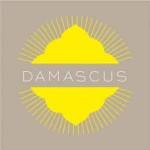Meditation is a wonderful method of helping the entire body to relax. Through some simple breathing exercises the body naturally feels the stress being released and for many people it allows them to be much more open and receptive. Meditation can also aid in helping with memory. When a person feels relaxed the memory seems to function much better. Through the use of breathing and concentration the memory feels alive and vibrant once again.
One recent study at the Massachusetts General Hospital found evidence that regular practice of meditation thickened the parts of the brain’s cerebral cortex responsible for decision making, attention and memory. Sara Lazar, leader of the study and a psychologist at Harvard Medical School presented results that showed that the grey matter of 20 men and women who meditated for just 40 minutes a day was thicker than that of people who did not. The researchers compared brain scans of 20 experienced meditators with those of 15 nonmeditators. Four of the former taught meditation or yoga, the rest worked in careers such as law, health care, and journalism. During scanning, the meditators meditated; the others just relaxed and thought about whatever they wanted. Meditators did Buddhist “insight meditation,” which focuses on whatever is there, like noise or body sensations. It doesn’t involve “om,” other mantras, or chanting. “The goal is to pay attention to sensory experience, rather than to your thoughts about the sensory experience,” Lazar explains. Depth of the meditation was measured by the slowing of breathing rates. Those most deeply involved in the meditation showed the greatest changes in brain structure. “This strongly suggests,” Lazar concludes, “that the differences in brain structure were caused by the meditation, rather than that differences in brain thickness got them into meditation in the first place.” (Sara W. Lazar, Meditation experience is associated with increased cortical thickness, Neuroreport. 2005 November 28; 16(17): 1893–1897)
Could meditation increase brain activity and improve memory and cognition in people who have Alzheimer’s disease?
According to a study conducted at the University of Pennsylvania, the answer is yes. Results of the study appear in the Journal of Alzheimer’s Disease. Dharma Singh Khalsa, MD, the founding president and medical director of the Alzheimer’s Research and Prevention Foundation, is an expert on Kirtan Kriya (KK), the type of meditation used in the new study. Kirtan Kriya is a 12-minute singing exercise in the Kundalini yoga tradition that involves repetitive finger movements plus singing the sounds Saa Taa Naa Maa, ancient primal sounds from Sanskrit. The study involved 15 individuals aged 52 to 77 years who had memory problems. At the beginning of the study, all the participants underwent cognitive tests and had images of their brains taken using single photo emission computed tomography (SPECT) scans. The subjects were then taught KK and instructed to practice it daily for eight weeks. A small comparison group of five individuals was also part of the study. These individuals were instructed to listen to two Mozart violin concertos daily for approximately 12 minutes, the same length of time as the KK sessions.
At the end of the eight weeks, both groups of participants underwent cognitive tests and SPECT scans. The researchers found that cerebral blood flow increased in the KK group in the frontal lobe regions and the right superior parietal lobe. Both of these brain regions are involved in retrieving memories. Subjects in the KK group also had statistically significant improvements in tests that measured cognition, general memory, and attention. Participants in the music group did not show any significant improvements in any of these areas.
Andrew Newberg, MD, associate professor of radiology at the University of Pennsylvania School of Medicine and a co-author of the study, noted that “It would be extremely useful to have a cost-effective, non-pharmacological approach to slowing memory loss.” Although additional studies of the impact of KK meditation is required, the results of this pilot study demonstrates that this form of meditation could be an important tool for helping people who have memory loss, as in Alzheimer’s disease. (Alzheimer’s Research and Prevention Foundation, Newberg AB et al. Journal of Alzheimer’s Disease 2010 Apr; 20(2) )
-

Damascus Acoustic – Track One – Mari
€1.50 Add to cart

